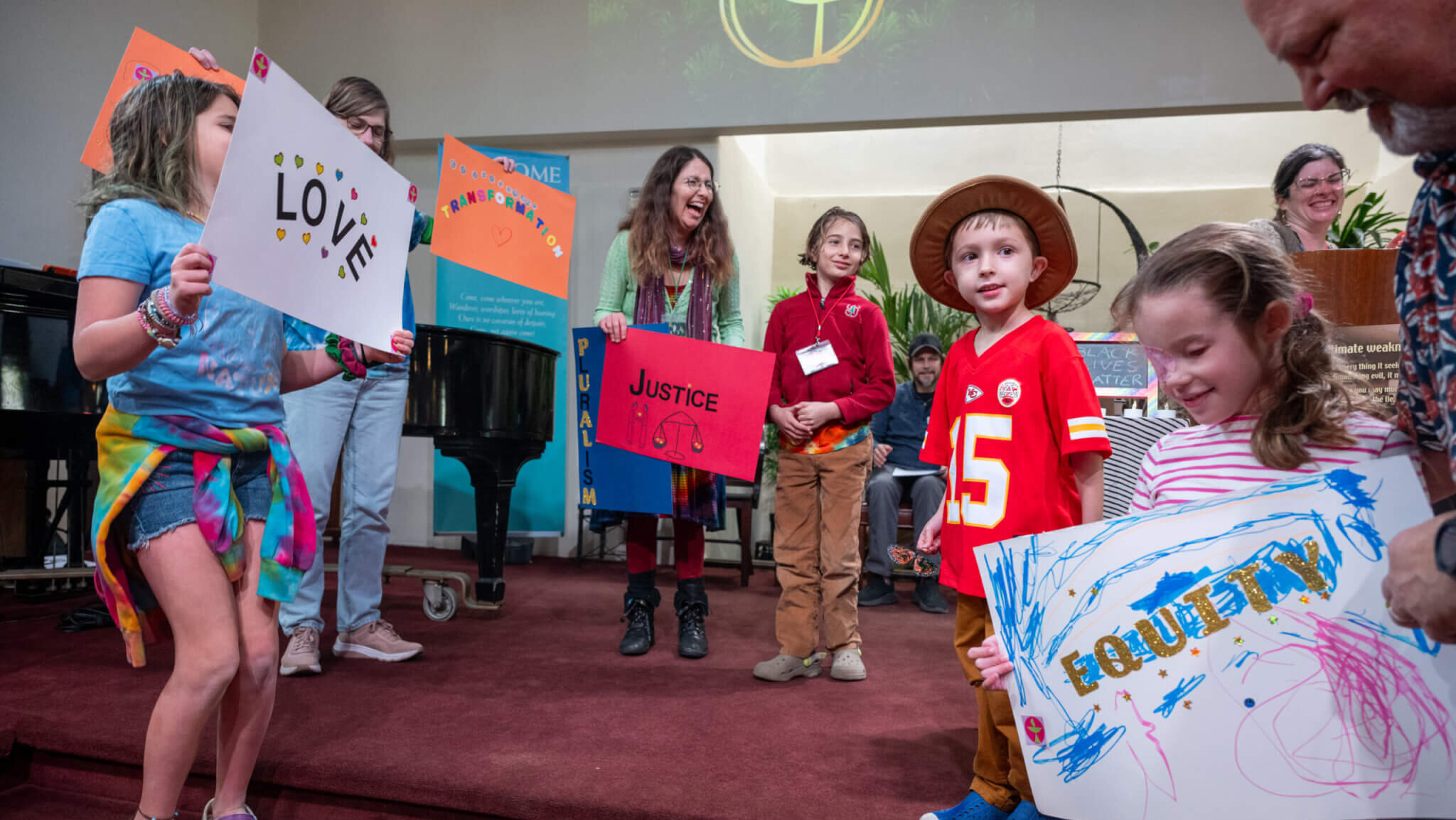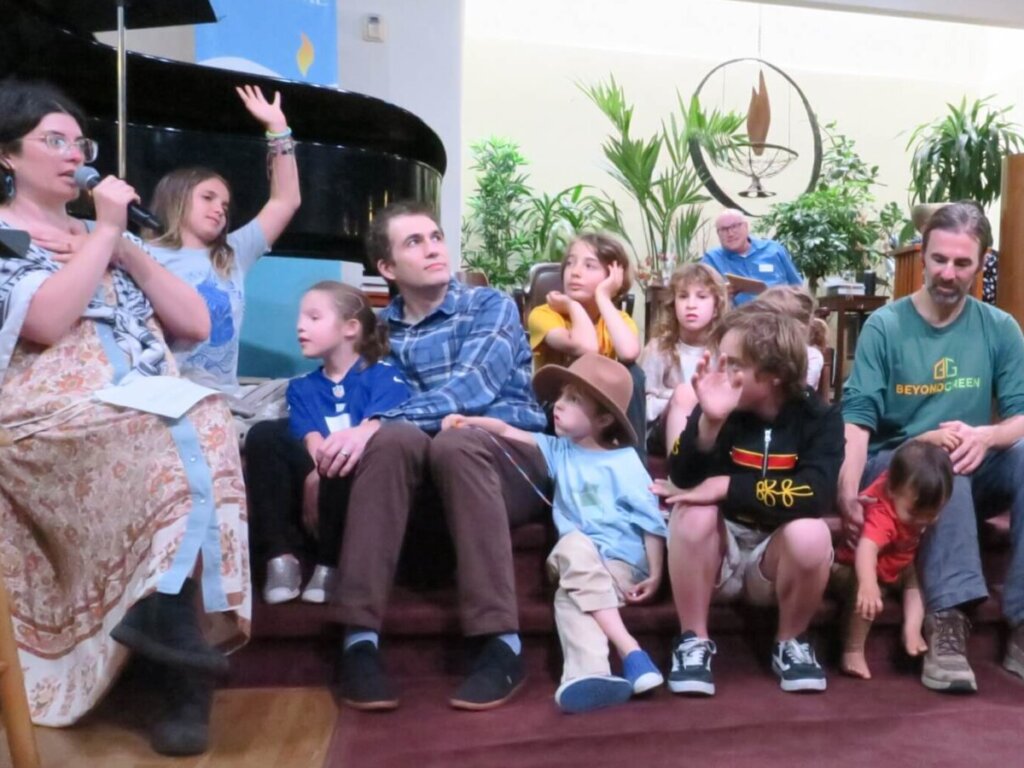The new month of April brings a new theme for our children’s RE curriculum, which for this month is “Living Love Through the Practice of Joy.”
Joy is one of the “Fruits of the Spirit” named in Christian scripture, along with love, peace, patience, kindness, generosity, faithfulness, and self-control. Joy is also a key concept throughout many diverse sects of Judaism — according to an 18th century Hasidic rabbi, “Joy is considered a biblical commandment, a mitzvah.” Art hanging in my home contains a Wiccan saying pointing to the importance of joy, “All acts of love and pleasure are my rituals.” These are just a few traditions we draw from in Unitarian Universalism that teach us about the spiritual importance of joy.
But joy can be hard to come by these days. The genocide in Gaza is escalating, people are being disappeared from our streets without due process, and thousands of workers are losing their jobs in the face of an already precarious economic situation, to name just a few examples of the existential weight we all carry. Where can joy be found? And why should we feel joyful in the midst of so much pain and sorrow?
I have found it helpful to see joy, much like other virtues like patience and kindness, as a spiritual practice we must cultivate. I don’t mean putting on a fake happy face even though we feel depressed — that isn’t joy at all. Practicing joy is about refusing to give up on life, to make time for the things that remind us why life and freedom and justice are worth fighting for. Writer Dan Savage recalls that “During the darkest days of the AIDS crisis, we buried our friends in the morning, we protested in the afternoon, and we danced all night. The dance kept us in the fight because it was the dance we were fighting for.”

Practice joy by thinking about what it is you are fighting for, and making it a part of your spiritual routine. Maybe it’s dancing all night at a queer club, or maybe it’s reading a book you love with your cat in your lap. Our expressions of joy are as diverse as we are. What’s important is to remind your body what joy feels like, even during days of sorrow. Maintaining that connection to joy will keep us living, keep us fighting.
In RE we will be spending April finding joy through foolishness (tapping into the power of being silly and childlike), through nature (on April 13th, the day of the Green Living Fair, which will feature activities for kids!), through hard times (on April 20th, when our Christian friends celebrate how new life can emerge in the darkest times, and when we will also have an Easter egg hunt after church for the kiddos!), and through music (a universal source of joy). If you’re not sure where you can find joy right now, try using humor, or nature, or music, as our kids will try this month. Practicing joy isn’t always easy — but it will keep our hearts alive.
Jessica TenHave-Place
Director of Multigenerational Religious Education (DMRE)
(she/her/hers)





